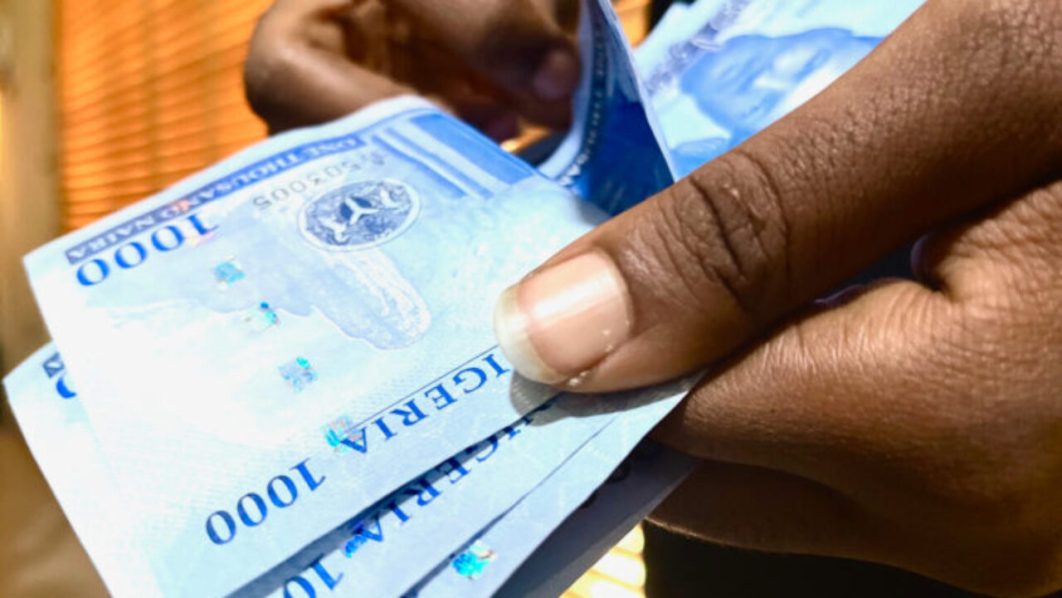
The illegal trade in freshly minted naira notes thrives on cultural norms, systemic inefficiencies, and weak enforcement, undermining Nigeria’s financial stability, AMEH OCHOJILA reports.
The Central Bank of Nigeria (CBN) has recently issued a stern warning to financial institutions, vowing severe penalties for any involvement in the illegal trade of freshly minted naira notes. This trade, which commodifies the naira, undermines cash distribution efficiency and public trust in the currency.
The CBN’s latest measure imposes fines of N150 million per branch on Deposit Money Banks (DMBs) found guilty, with even stricter penalties for repeat violations under the Banks and Other Financial Institutions Act (BOFIA) 2020. According to the CBN, these steps, coupled with plans for intensified oversight such as spot checks and mystery shopping exercises, signal the CBN’s determination to address the issue.
Illegal trade in naira mint has become a resilient underground economy, thriving on cultural norms and systemic inefficiencies, especially as the festivities approach. It is rooted in societal practices that equate crisp notes with prestige and affluence, particularly during ceremonies and festivities. This trade has grown into an organised network within the banking sector.
This is because bank officials exploit loopholes within the system to divert new notes meant for Automatic Teller Machines (ATMs) and other legitimate outlets. Even inside the banking hall, an ‘ordinary’ customer would hardly be given crisp notes during withdrawals. In fact, bank tellers usually deny that they have new notes on demand. But these same notes, which are not in bank vaults, suddenly make their way to the streets when vendors come.
When many Nigerians travel to their hometowns for weddings, burials, birthdays, and other end-of-year celebrations, showcasing these crisp currency notes is often dignifying. This practice frequently leads to violations of laws, including the indiscriminate spraying of money, which in most cases leads to mutilated notes.
For some, the notes are funnelled to intermediaries who sell them at a premium in open markets, especially in cities like Kano, Lagos and Abuja, where hawkers openly display bundles of fresh naira notes. This diversion deprives ordinary citizens of access to currency and erodes trust in financial institutions.
Efforts to curb the trade have faced challenges due to systemic corruption and societal complicity. Bank officials involved are seldom prosecuted, while enforcement agencies often lack the resources or political will to dismantle the networks sustaining this trade. Cultural preferences continue to fuel demand, and public awareness of the broader economic implications remains limited.
Also, weak internal controls in banks and enforcement gaps further embolden perpetrators, undermining the effectiveness of regulatory frameworks. Even when arrests are made, the networks quickly adapt, making the trade difficult to eradicate.
The CBN has, over the years, attempted various strategies to tackle the issue, from mandating proper distribution of mint notes through authorised channels to periodic audits and increased surveillance. One of such was the organisation of awareness campaigns to educate the public on the legal and ethical implications of the trade that is deeply ingrained in cultural practices.
Partnerships with law enforcement agencies, including high-profile raids and prosecutions, have had limited success in dismantling the resilient networks. The introduction of cashless policies has had more impact on urban areas, reducing reliance on physical currency, but rural areas where cash is still dominant remain largely unaffected.
These strategies were largely unsuccessful due to poor implementation processes and weak internal implementation mechanisms. Despite the apex bank’s efforts, the illegal trade in naira mint persists. The societal demand for fresh notes continues to drive the market, with little regard for the negative economic consequences, including cash shortages and undermined currency stability. Corruption within financial institutions further complicates the issue, ensuring a steady supply of mint notes to black-market operators.
The question is, will the CBN’s sanction threat arrest the malaise? Although this threat reflects a renewed determination, punitive measures alone are unlikely to dismantle the entrenched system. Banks that usually declare billions of naira in profit would likely care less about paying N150 million fine. So, the regulator must think outside the box. It must consider holding the respective branch managers accountable for such violations.
In a circular issued on December 13, 2024, and signed by the Acting Director of the Currency Operations Department, Mohammed Olayemi, the apex bank said subsequent violations would attract even stricter penalties under the provisions of the Banks and Other Financial Institutions Act (BOFIA) 2020.
In addition to the penalties, the CBN has called on banks to tighten their internal controls, processes, and procedures around cash management, particularly at Cash Management Centres, branches, and teller operations.
The circular read: “The CBN has noted with dismay the prevalence of illicit flow of mint banknotes to currency hawkers and other unscrupulous economic agents that commodify Naira banknotes, thus impeding efficient and effective cash distribution to banks’ customers and the general public.
“CBN will continue to intensify the periodic spot checks to the banking halls/ATMs to review cash payouts to banks’ customers and mystery shopping to all identified cash hawking spots across the country.
“In this regard, any erring deposit money banks or financial institutions that are culpable of facilitating, aiding, or abetting, by direct actions or inactions, the illicit flow of mint banknotes to currency hawkers and unscrupulous economic agents that commodify Naira banknotes shall be penalised at first instance N150 million, only, per erring branch, and at later instances, apply the full weight of relevant provisions of BOFIA 2020.”
However, experts said tackling the issue of the naira mint trade is beyond reactionary measures and that the root causes need to be addressed. Addressing it requires a more comprehensive approach that includes strengthening cash distribution mechanisms, enhancing oversight and accountability in banks, promoting digital transactions, and intensifying public education on the consequences of the trade.
Without these, the illegal naira mint trade will remain a lucrative underground economy, perpetuating inefficiencies and undermining Nigeria’s financial system.
According to an economist, Tony Ochapa, the CBN’s past efforts, though commendable, must go beyond enforcement and address the deeper structural and cultural factors that sustain this illicit trade, stressing that only by tackling these root issues can achieve lasting solutions.
Also, a banking and finance expert, Fidelis Ijegbudu, argued that addressing the issue requires a deeper understanding of why and how it is happening in the first place. He explained that while sanctioning deposit money banks may have some impact, its effectiveness could be limited.
“Are the banks the only players involved in such malpractices?” he asked, pointing to other stakeholders like POS operators, bureau de change operators, and even individuals who might engage in such practices to augment cash flow.
Ijegbudu emphasised that the situation becomes even more complex when considering the potential involvement of fintech companies. “You can’t rule out the possibility, especially when money is to be made. Every player has their approach to this,” he noted.
He cautioned that sanctioning banks alone might offer a superficial solution without addressing the root causes of the problem. Instead, he urged the CBN to take a more comprehensive approach. “The CBN needs to identify the underlying causes, study the situation, analyse it carefully, and propose a holistic solution. Sanctioning the banks alone will never be enough. It might prove grossly insufficient”, he said.
A financial expert, Victor Idajili, stated that the illicit flow of mint banknotes persists because financial institutions are aiding and abetting such activities. According to him, the harsh economic situation has pushed individuals, including bankers, to seek alternative means of survival, as basic salaries are no longer sufficient to meet their needs. He, therefore, called for the improvement of the welfare of bank staff against casualisation, which is very common within the sector.
For human rights lawyer Deji Ajare, the threat of sanctions by the CBN is unlikely to curb the illegal trade. Ajare argued that it was not the first time the CBN has issued such warnings, yet the illicit practice persists unabated. He attributes this to two major factors: weak enforcement and the lucrative incentives for those involved.
“The real challenge appears to be enforcing these sanctions,” Ajare observed, likening the CBN to a “toothless bulldog” in its inability to act decisively.
Furthermore, he argued that bank officials and other insiders are sufficiently motivated by the financial rewards to continue the practice despite its illegality.
For development economist, Victoria Ochanya Ochapa, curbing the illegal trade requires a comprehensive public education campaign. She emphasised the importance of using media platforms to highlight the legal and economic consequences of engaging in such practices.
Ochapa also advocated a cultural shift away from the reliance on cash at social events. “Promoting cashless alternatives such as money transfers or gift vouchers can help reduce the demand for physical currency,” she noted. According to her, CBN needs a more stringent penalty on the commercial banks to deter them from engaging in such illicit trade.
“Sanctioning banks alone is insufficient to curb the illegal trade in mint notes. Addressing this deeply rooted issue requires a comprehensive strategy that targets cultural practices, systemic inefficiencies, and weak enforcement,” she declared.






